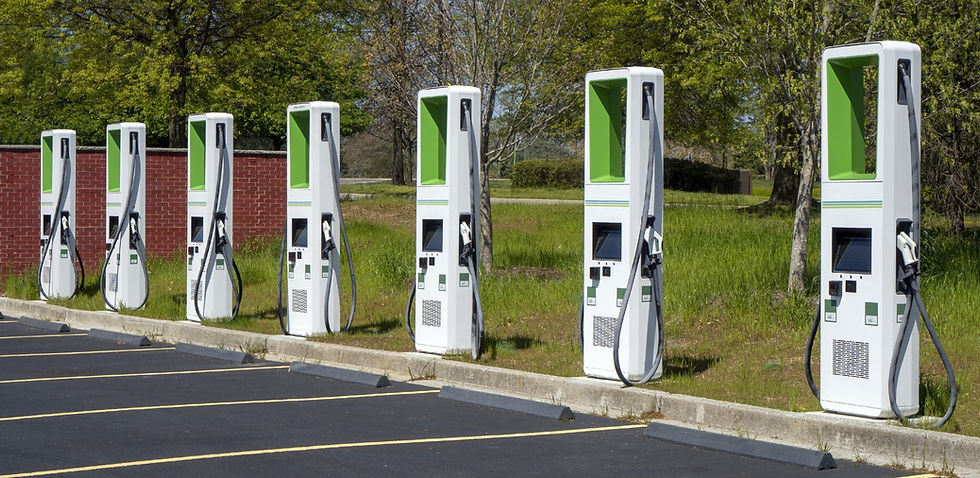Supply Chain Constraints in the EV Industry
- andrewbdavis928
- Dec 12, 2022
- 1 min read

The electric vehicle (EV) industry has been facing significant supply chain disruption in recent years, as demand for EVs has increased and the industry has struggled to keep up. Several factors, including a shortage of critical components, such as batteries and semiconductors, production bottlenecks, and other challenges, have caused this.
One of the significant drivers of supply chain disruption in the EV industry has been the rapid growth in demand for EVs. As more people are looking to switch to eco-friendly transportation, the need for EVs has soared. However, the industry has struggled to keep up with this demand, leading to shortages of critical components and production bottlenecks.
Another factor contributing to supply chain disruption in the EV industry has been the global semiconductor shortage. Semiconductors are a critical component of EVs, and the drought has made it difficult for manufacturers to obtain the chips they need to produce EVs. This has led to production delays and other challenges.
The ongoing trade war between the United States and China has also impacted the EV industry. The tariffs and other measures implemented by both countries have made it more difficult and costly for companies to source components and materials from each other, leading to supply chain disruptions.
Overall, the supply chain disruption in the EV industry has hurt manufacturers and consumers. It has made it more difficult and costly for manufacturers to produce EVs and has led to delays and other challenges for consumers looking to switch to EVs. To address these challenges, the industry will need to find ways to improve supply chain efficiency and mitigate the impact of global trade tensions.








Looking into data engineering is a good move for those who like tackling difficult data problems. The College of Contract Management offers a Professional Diploma in Data Science that covers essential technical concepts. This gives students the abilities they need to succeed in jobs that focus on data.
Continuing Professional Development is referred to as CPD. Enhancing and updating abilities is the aim of online cpd courses. They are typically taken later in a person's career to ensure that their job standards are always rising. Therefore, Construction Disputes and Avoidance CPD is offered by the College of Contract Management. People can become more active in the building industry by taking this course.
In the construction industry, gaining qualifications like nvq is a key step for those who want to lead projects with confidence. It builds the skills needed to manage health, safety, and resources effectively on-site. The College of Contract Management also provides pathways to progress toward nvq level 8 construction management, opening doors to senior roles in the industry. Delivered live online, the courses are flexible to study around work, making it easier to move your career forward.
Supply chain constraints in the EV industry, such as shortages of chips and raw materials, highlight how even small details can disrupt production. Similarly, in fashion or branding, delays in small applique patches can affect delivery schedules. Both industries show that timely sourcing, reliable partners, and efficient logistics are essential for maintaining smooth operations and customer satisfaction.
The supply chain challenges in the EV industry really highlight how global issues like chip shortages and trade tensions can slow innovation. It’s similar to how businesses face issues in content production sometimes, you just need to Pay Someone to Blog Posts Writing Service to keep things moving. I’ve even seen PaysomeoneTo help with that kind of consistency.